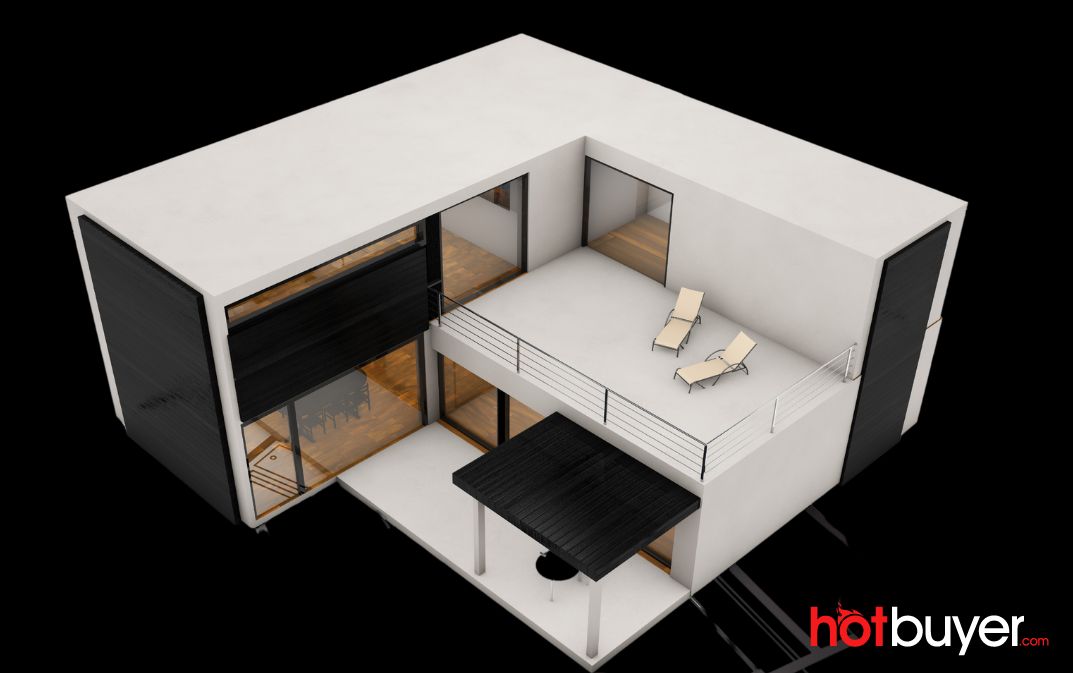In the ever-evolving landscape of residential architecture, Modular Smart Homes stand as a testament to the fusion of technology, sustainability, and adaptability. These homes, designed with precision and tailored to individual needs, are not just living spaces but dynamic environments that evolve with their inhabitants. This comprehensive guide delves into the intricacies of Modular Smart Homes, showcasing their unique features, the benefits they bring to the table, and the transformative impact they have on the concept of home living.
The Blueprint of Innovation: Understanding Modular Smart Homes
Modular Smart Homes are prefabricated structures that are manufactured off-site in sections, or modules, and then assembled on-site to create a fully integrated smart home. These homes are designed with the latest in home automation technology, allowing residents to control various aspects of their living environment, from lighting and heating to security and entertainment systems, all through smart devices and voice commands.
Customization at Its Core: The Modular Advantage
The modular nature of these homes offers unparalleled flexibility in design and layout, allowing homeowners to customize their living spaces to their exact specifications and lifestyle requirements. Whether it’s adding an extra room, reconfiguring the layout, or updating the interior design, Modular Smart Homes can be easily adapted to meet changing needs and preferences.
Sustainability by Design: Eco-Friendly Living
One of the most compelling attributes of Modular Smart Homes is their emphasis on sustainability. Constructed with eco-friendly materials and designed for energy efficiency, these homes significantly reduce the carbon footprint associated with traditional homebuilding. Features like solar panels, energy-efficient appliances, and smart thermostats further enhance their green credentials, making them an ideal choice for environmentally conscious homeowners.
The Smart Home Ecosystem: Technology at Your Fingertips
At the heart of Modular Smart Homes lies an integrated smart home ecosystem that brings convenience and efficiency to everyday life. From automated lighting systems that adjust based on natural light levels to smart security systems that offer peace of mind, these homes are equipped with the latest technology to create a comfortable, secure, and efficient living environment.
Building Blocks of the Future: The Construction Process
The construction of Modular Smart Homes represents a significant departure from traditional homebuilding methods. Manufactured in controlled factory settings, these modules are subject to stringent quality checks before being transported to the site for assembly, ensuring a high level of craftsmanship and reducing the risk of construction-related delays and issues.
Adaptive Living: The Dynamic Nature of Modular Homes
The real beauty of Modular Smart Homes lies in their ability to adapt and evolve. As families grow, technologies advance, or lifestyles change, these homes can be easily modified to accommodate new needs, ensuring that they remain a perfect fit for their inhabitants over the years.
Overcoming Challenges: Navigating the Modular Landscape
Despite their numerous benefits, Modular Smart Homes are not without their challenges. Navigating zoning laws, finding skilled contractors familiar with modular construction, and ensuring seamless integration of smart technologies are some of the hurdles that potential homeowners may face. However, with the right planning and expertise, these challenges can be effectively managed.
The Road Ahead: Innovations in Modular Smart Home Design
The future of Modular Smart Homes is bright, with ongoing innovations in materials, construction techniques, and smart home technology promising to make these homes even more efficient, sustainable, and user-friendly. As we move forward, Modular Smart Homes are set to redefine the landscape of residential architecture, offering a glimpse into the future of living.
Modular Smart Homes represent a paradigm shift in the way we think about our living spaces, combining the flexibility of modular construction with the convenience of smart home technology to create living environments that are not just houses but truly intelligent homes. As this trend continues to gain momentum, it offers a vision of a future where homes are not only places of comfort and security but also bastions of sustainability, efficiency, and adaptability, tailored to the needs and aspirations of their inhabitants.

